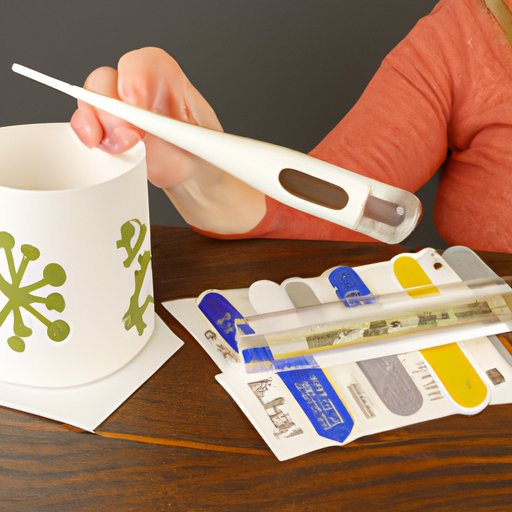
I. Introduction
Flu season is around the corner, and it’s important to know how to get tested for the flu. In this article, we will discuss what you need to know about getting tested for the flu, the different types of tests available, and how to prevent the flu from spreading. By the end of this article, you will have a better understanding of how flu testing works and why it’s essential to get tested.
II. The ABCs of Getting Tested for the Flu: What You Need to Know
Influenza, commonly known as the flu, is a contagious respiratory illness caused by the influenza virus. Symptoms of the flu include fever, cough, sore throat, body aches, fatigue, and headache. The flu can spread from person to person through respiratory droplets when an infected person talks, coughs, or sneezes.
Getting tested for the flu is essential because it helps to identify the flu virus early and start the appropriate treatment. Testing also helps to prevent the spread of the flu to others.
III. Flu Testing 101: Understanding Your Options
There are two main types of flu tests: molecular tests and rapid influenza diagnostic tests (RIDTs). Molecular tests are more accurate but take longer to process, while RIDTs are less accurate but give results within minutes.
You can get tested for the flu at your doctor’s office, clinics, urgent care centers, and some pharmacies. When choosing where to get tested, consider the cost, convenience, and availability of the different types of tests.
Before getting tested, understand the pros and cons of each type of test. Molecular tests, such as RT-PCR and nucleic acid amplification tests (NAATs), are more accurate and can detect the flu virus even when the symptoms are mild. However, they take more time to process and may be more expensive. RIDTs are less accurate but provide results within minutes and are typically less expensive.
IV. Do You Have the Flu? Here’s How to Get Tested
If you suspect that you have the flu, contact your healthcare provider, who will guide you through the testing process. Your doctor may also recommend additional tests to rule out other illnesses. During the testing process, a healthcare provider will collect a sample of respiratory fluids from your nose or throat using a swab.
The waiting time for flu test results can vary depending on the type of test; molecular tests generally take longer than RIDTs. While waiting for the test results, it’s important to take precautions to prevent the virus from spreading to others, such as staying home and avoiding close contact with others.
If your test comes back positive for the flu, your healthcare provider will discuss treatment options with you. Typically, treatment for the flu involves rest, hydration, and possibly antiviral medications. It’s also essential to take steps to prevent the virus from spreading further.
V. Before the Flu Strikes: How to Get Tested and Prevent the Spread
Preparing for flu season involves taking steps to prevent the virus from spreading and staying up-to-date on vaccination. The flu vaccine is the most effective way to prevent the flu. While it may not prevent all cases of the flu, it can reduce the severity of flu symptoms and prevent complications.
Other ways to prevent the spread of the flu include washing your hands frequently, covering your mouth when coughing or sneezing, and avoiding close contact with people who are sick. If you do become sick, it’s important to stay home and avoid contact with others to prevent the spread of the virus.
VI. The Importance of Getting Tested for the Flu: A Comprehensive Guide
Getting tested for the flu is an important step in preventing the spread of the virus and obtaining timely treatment. The flu can be debilitating and even life-threatening in some cases, especially for older adults, young children, and people with compromised immune systems.
Ignoring flu symptoms or not getting tested can lead to complications such as pneumonia, sinus infections, and ear infections. Testing for the flu is also essential for tracking the spread of the virus and identifying potential outbreaks.
VII. Flu Season is Coming: Here’s What You Need to Know About Testing
As flu season approaches, it’s essential to be prepared and informed. Knowing where to get tested and what type of test is best suited for you can save you time and money. Preparing for the flu season also means taking steps to prevent the spread of the virus, such as staying home when you’re sick and practicing good hygiene.
VIII. Conclusion
Getting tested for the flu is essential for protecting yourself and those around you. By understanding your testing options, preparing for flu season, and taking steps to prevent the spread of the virus, you can stay healthy and reduce the impact of the flu on your life.
Remember to get vaccinated, follow good hygiene practices, and contact your healthcare provider if you suspect you have the flu. With the right information and preparation, you can stay healthy and safe during flu season.




